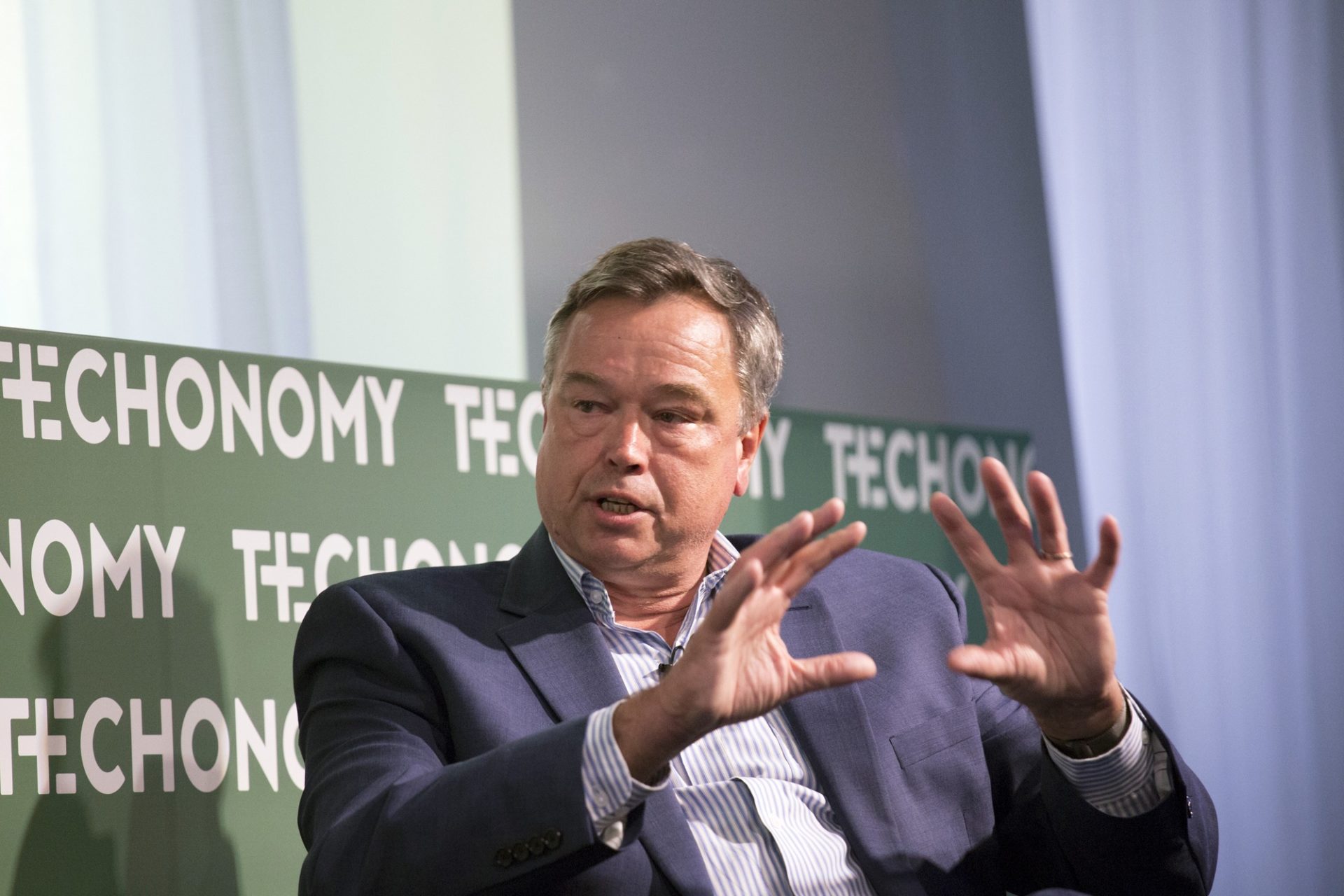
Jeffrey Sachs threw down the challenge and one by one the speakers at Techonomy NYC rose to answer it.
Sachs, an impassioned champion of the U.N. Sustainable Development Goals (SDGs) and a tireless fighter for economic equality, came to Techonomy NYC with a bracing message: We have the know-how and the affluence to solve many of the world’s problems, but we don’t have the interest.
“I want all of you to understand how serious our problems are — not because they are unsolvable but because we don’t try,” he said.

Business, he said, is too bottom line oriented to rise to the challenge. “The market is not good for poor people, not good for nature, not good for other species. To think so is a major derangement. There are things that will not come from businesses solving problems on a market basis.”
And yet those who attended Techonomy NYC heard from an array of innovators in business who are taking on some of the world’s most vexing issues and who see business opportunities in doing so. Companies as large as Microsoft, Blackrock, Johnson & Johnson, S&P Global, Citi, Airbnb, and Novozymes, and as small as Amyris, Andela, The Second Shift, and Tenshey all make a direct connection between their business strategies and solving larger societal problems. (Each link takes you to the respective conference session.)
Novozymes, perhaps the biggest company you’ve never heard of, has a market cap of about $15 billion. Since 2015, the Danish biotech’s strategy has been tied explicitly to the SDGs, so much so that some of the compensation for Novozymes’ top 200 executives is tied to growing revenue based on sustainability targets.
The company is focused on four of the SDGs: zero hunger, quality education, clean water and sanitation, and climate action.
Peder Holk Nielsen, Novozymes CEO, said that what motivates the researchers and scientists who work there is the company’s purpose, not its revenue and profits. “They will not work their butt off to gain shareholder value,” he said. “But they will work their butt off to change the world.”

One place where Novozymes has found you can solve global problems and simultaneously build a business: the laundry. Thanks to the company’s engineered enzymes, which are added to laundry detergent, the same shirt that once required 140-degree Fahrenheit water to get clean can see the same result in water at only 80 degrees. “You may not think about the difference between 80 and 140, but it’s a tremendous amount of energy,” he said. That’s just one way the company has managed to reduce the aggregate annual carbon dioxide output associated with use of its products by 76 million tons — the equivalent of getting 35 million cars off the road.
While Novozymes shows that big business can succeed with a strategy built around the SDGs, Andela is a young company that identified a market opportunity that helps create economic opportunity in the developing world. Andela trains software developers in Africa and enables them work remotely at jobs in global companies.
Company co-founder Christina Sass said there are five open jobs for every software developer in the United States and roughly 1.4 million software jobs went unfilled in the U.S. in 2016 alone. Since its launch in 2014, the company has raised $81 million and now has 1,000 employees, many in Africa. Its mission: “To advance human potential by powering today’s teams and investing in tomorrow’s leaders.”
“Markets are a force in how tech can help,” Sass said in her Techonomy talk, responding to Sachs, who she immediately followed on the program. “Distributed work can lead to the democratization of wealth.”
Her point was echoed throughout the two-day conference, with the clear takeaway being that companies with a well-defined social purpose that is truly central to how they operate have a long-term competitive advantage.
It is a point not lost on BlackRock, the world’s largest investor, with more than $6 trillion under management. “For companies to succeed,” said Brian Deese, BlackRock’s global head of sustainable investing, “they need to be able to define and defend their social purpose.”
Sachs, however, is skeptical. “There’s two kinds of scoundrels,” he said. “The politicians and the business sector, which is to a large extent amoral or immoral because they don’t care except for the bottom line.”
He is broadly correct. As Sachs said repeatedly throughout his conversation with Techonomy’s David Kirkpatrick, the political system is often bent by corruption. The business world is largely driven by short-term revenue and a growth-at-any-cost mentality. And yet, so many people are undeterred by this truth, and have set out to do right in the world. They see opportunity where others do not. They stand as a comforting counterpoint to Sachs’ concerns.
Jeff Sachs Says Companies Won’t Remake the World. These Companies Beg to Differ.
Speaking at Techonomy NYC, economist Jeffrey Sachs painted a bleak picture of the world's biggest problems. Yet an array of innovators in business spoke about how they are rising to the challenge.















